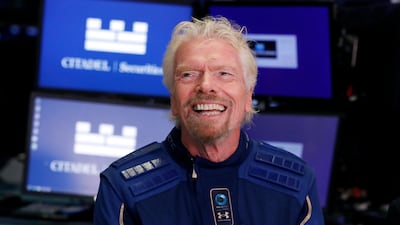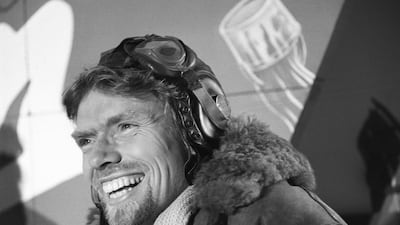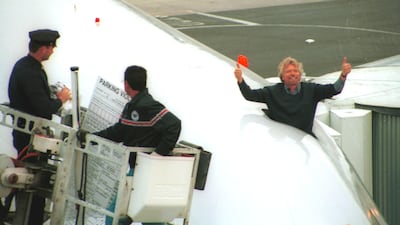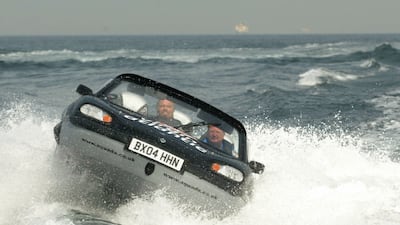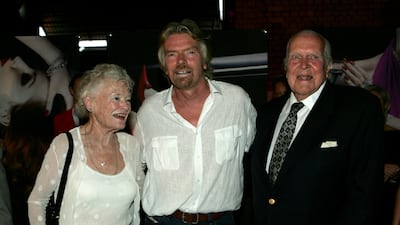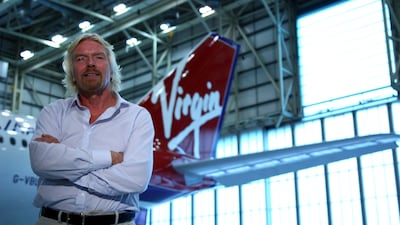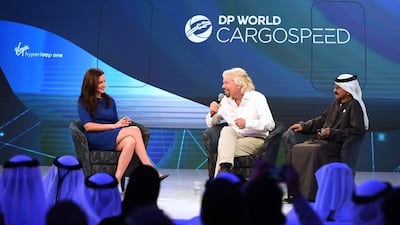Richard Branson has said that he has no plans to retire and that he now spends most of his time working with his non-profit organisations.
“My focus has changed over the years,” the entrepreneur said in an interview with The Telegraph.
“About 80 per cent of the work I do now is with my non-profit organisations.”
He went on share that his most recent causes include hammerhead sharks and the end of capital punishment worldwide.
As well as his charitable work, Mr Branson won the billionaire’s space race on July 11, 2021, when his rocket launch beat Jeff Bezos’s by a matter of days.
However it has also tarnished his reputation in recent years, with critics accusing him of wasting money to participate in the space race when there are so many problems on Earth that remain to be solved.
“It’s a fair question,” he said.
“But space innovation has already transformed the world in positive ways and it will continue to do so.
“Virgin Orbit will be putting up the first satellites from European soil hopefully in the next few weeks and those satellites are doing a multitude of useful things — from monitoring illegal fishing to degradation of rainforests.
“The people taking aim at me over this are probably doing so from their phones, only made possible by space technology.
“I don’t think solving the world’s problems by stopping technological breakthroughs is the way to do it.”
Sir Richard Branson through the years — in pictures
Mr Branson said he spends “most of his time now focusing on solving” climate change, but admits this is something of a paradox given the carbon footprint made by his airline and space company.
“I’m still faced with difficult dilemmas,” he said.
He added that he was approached by an airline in the US two years ago that wanted to collaborate on relaunching Virgin America.
“It would have been good for our brand in the States, and I reasoned that if we didn’t do it someone else would,” he noted.
Mr Branson declined the deal, pledging that while he would continue to develop his existing “carbon dirty” businesses, he would not pursue new ventures with a heavy environmental cost.
Mr Branson shared how he felt when he was strapped into his slick seat on Virgin Galactic’s rocket last July, when he made history as the first businessman to make it into space — a project more than 17 years in the making, with input from nearly 1,000 engineers and test pilots.
“We went from zero to 3,500mph in eight seconds, and then the silence was all-encompassing,” he recounted.
“I had dreamt about this since I was a child, but nothing prepared me for the view of Earth from space. It was pure, unadulterated magic.”
On this return to solid ground, Mr Branson began analysing the experience.
“I’d like to do a couple more flights so we can fine-tune the experience before our first paying customers follow me soon,” he said last year.
At least 700 ticket-holders have already paid up to $250,000 to experience the space trip, with Leonardo DiCaprio and Angelina Jolie rumoured to be among them.
“It’s the little things that make a big difference with Virgin Atlantic, and this will be no different,” he continued.
“For example, it has come to my attention that once you’ve got the parachute on, the spacesuit is such that you can’t take a pee. I’d like to change that.”
He went on to discuss the disaster that faced Virgin due to the Covid-19 pandemic.
“To this day, I’m as afraid as the next person when things go wrong,” he said.
“But as an entrepreneur, when I’m facing catastrophe, I have to stay focused despite the fear.”
For Mr Branson, the pandemic was “the most disastrous thing to happen to Virgin”.
“We fought tooth and nail to keep it together,” he said.
“I’ve always thought diversification helps save companies.
“But it just so happened that every sector we had diversified into got clobbered by Covid: aviation, leisure, hotels, gyms, banking and cruises.
“Literally every week, a new crisis reared its head in one part of the globe or another.”
He said “our baby” Virgin Atlantic, the airline he launched 38 years ago, “proved most critical”.
The airline had already experienced a taster following 9/11, when the fleet was grounded for six weeks.
“That was bad enough,” Mr Branson remarked.
“We were selling everything we could to keep it going.
“But if someone had told me then, that one day we would be grounded for the best part of two years — on paper I would have said it would be impossible to survive.”
At home with Richard Branson on Necker Island — in pictures
Mr Branson received heavy criticism for asking the UK government for a loan, but he argued that all the American carriers and most of the European ones managed to secure them — the majority of them with 1 per cent interest rates.
The government declined Virgin’s request for financial support.
“Our team then managed to swing an extremely expensive private loan to keep Virgin Atlantic afloat, but we’re now competing on a very tilted playing field,” he continued.
“I also had to sell pretty much all of my shares in Virgin Galactic, which was obviously a great pity.”
Touching on his personal life, Mr Branson shared: “I’ve been gonged offstage for stammering as a child, to my great humiliation at the time.
“But my mum used to say that being shy was selfish.”
When asked if he will ever return to England, he said: “I spent the first 30 years of my life there.
“I’ve often thought that after you’ve ensnared your partner, it’s OK to move away from where you started.”
He married Joan in 1989 and revealed he bought his tropical paradise Necker Island for $180,000 (£145,000) early in his career in 1978 “to woo” the woman who would later became his wife.
“When I’m on my deathbed, I want to know I have helped other people’s lives,” he concluded.
“That might be a selfish view. I’ll leave it to the obituary writers to decide whether I made a positive difference or not.”
